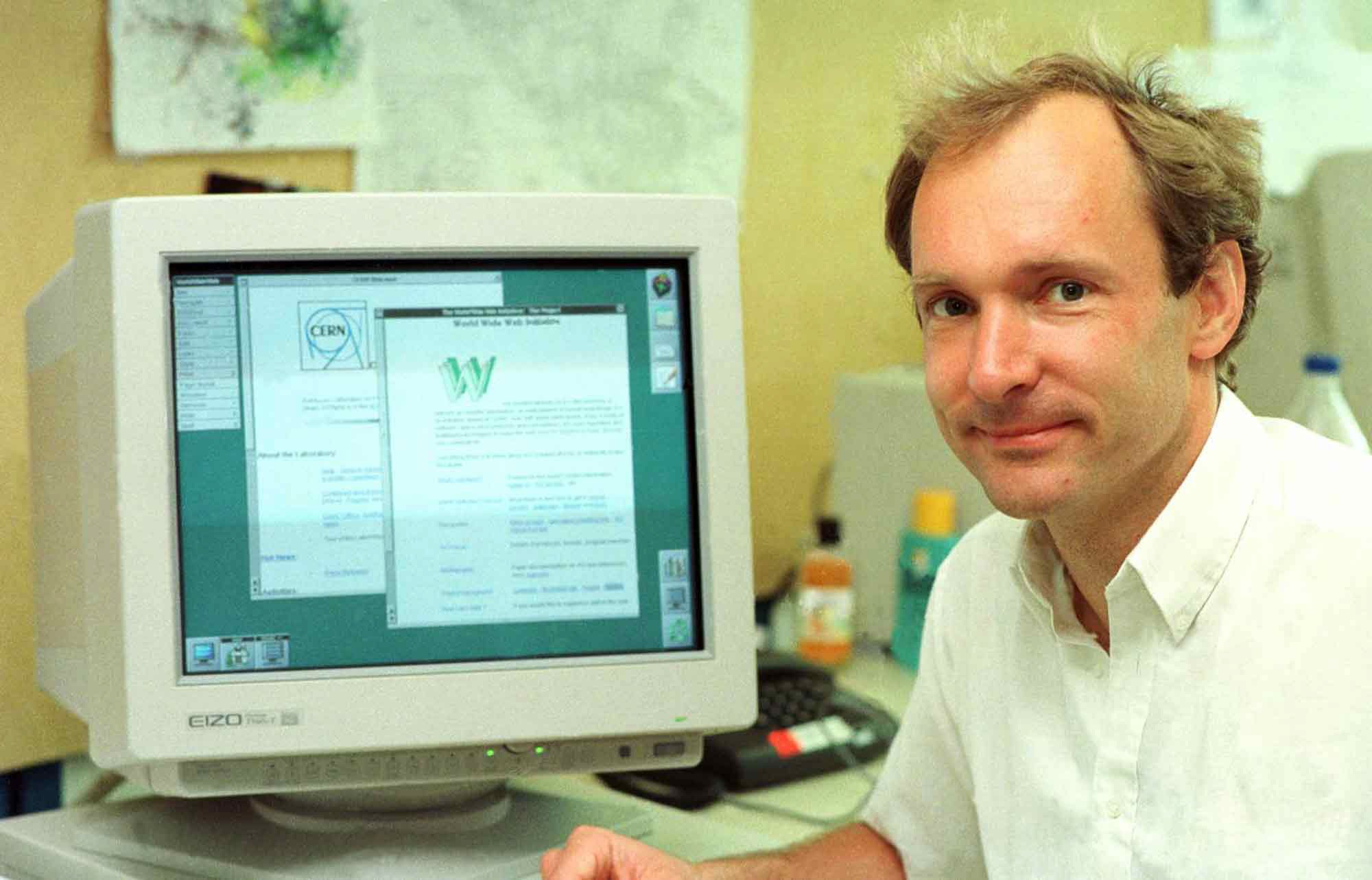
It could not be further from reality: that simple document to explain how to configure a web server so that other people could access it, was created using the language known as HTML –HyperText Markup Language– created by Tim Berners-Lee which, in a more advanced version, is still used today in all the websites in the world.
On March 12, 1989, Sir Tim Berners-Lee, a British scientist, put forward a system that would allow for the sharing of information between computers. His idea was based on creating nodes linked in a network –here the name of the website– that eventually would grow to a global scale. Only a year later, on December 20, 1990, he put up the world's first webstie, which can still be visited today.
Today we are used to complicated websites that in some cases have become genuine online apps. If we think about the example of Google Docs –a suite of office productivity apps in the cloud– or Facebook –with its tools for sharing video, chat, images...– we could be forgiven for thinking that the current web has nothing to with that initial web page that mister Berners-Lee created.
That small web page would change our lives, it was put up in CERN (European Organization for Nuclear Research), the European organisation into nuclear research that today operates the Large Hadron Collider that has generated so much interest in recent years.
Interestingly, the computer that hosted that first version of a web page was a NeXT, created by the company founded by Steve Jobs when he was sacked from Apple and who later resold it to the Cupertino company when he returned. It's operating system, NeXT Step, was the basis for the current MacOS X, the operating system used by Apple computers.
Control of the Internet
To celebrate the 25th anniversary, Berners-Lee has published a post on the Google blog in which he calls on users to advocate for a free and open web for everyone, at the same time as he urges them to be alert to the key decisions taken by governments to define the future of the net.
Berners-Lee has always been a firm defender of a free Internet, at the same time as criticising those government institutions that spy on citizens, such as the American NSA or the British GCHQ.
In an interview with The Guardian newspaper, the creator of the Internet explained that this 25th anniversary should serve for users around the world to regain control of the Internet and define what the net will be like for the next 25 years. What's more, Berners-Lee warned about the danger of the public becoming used to excessive surveillance by governments using the argument of security.